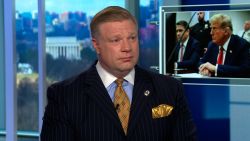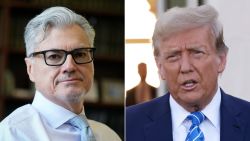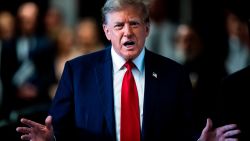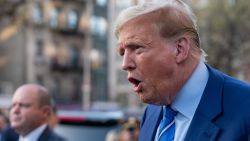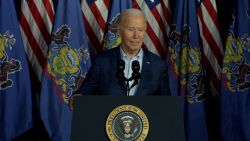He turns on everyone eventually.
The “he” is, of course President Donald Trump. And the everyone is, well, everyone – but in this case Rudy Giuliani, the former mayor of New York City who has risen to infamy in recent years as the President’s personal lawyer.
In the wake of his second impeachment at the hands of the House on Wednesday, Trump told people around him to stop paying Giuliani’s legal fees. As CNN reported on Thursday morning:
“Trump has been blaming his longtime personal attorney and many others for the predicament he now finds himself in, though he has not accepted any responsibility in public or in private, people familiar with his reaction told CNN. Giuliani is still expected to play a role in Trump’s impeachment defense but has been left out of most conversations thus far.”
Seeking to do a bit of damage control Donald Trump Trump aide Jason Miller tweeted this out: “Just spoke with President Trump, and he told me that @RudyGiuliani is a great guy and a Patriot who devoted his services to the country! We all love America’s Mayor!”
(It may be worth noting here that Trump has been de-platformed from Twitter.)
Trump’s Miller’s denial aside, the withholding of money from people performing a service for him is a long-standing Trump tactic. It’s, well, sort of his thing.
“Donald Trump often portrays himself as a savior of the working class who will “protect your job.” But a USA TODAY NETWORK analysis found he has been involved in more than 3,500 lawsuits over the past three decades — and a large number of those involve ordinary Americans, like the Friels, who say Trump or his companies have refused to pay them.
“At least 60 lawsuits, along with hundreds of liens, judgments, and other government filings reviewed by the USA TODAY NETWORK, document people who have accused Trump and his businesses of failing to pay them for their work. Among them: a dishwasher in Florida. A glass company in New Jersey. A carpet company. A plumber. Painters. Forty-eight waiters. Dozens of bartenders and other hourly workers at his resorts and clubs, coast to coast. Real estate brokers who sold his properties. And, ironically, several law firms that once represented him in these suits and others.”
What’s 60 lawsuits between friends people you owe money and refuse to pay!
Trump’s attempts to penalize – in a pecuniary fashion – Giuliani is simply one of the latest examples of how, in the end, Trump casts out everyone who has ever been loyal to him.
Giuliani, who two decades ago was among the most popular politicians in the country and who, had he never gotten wrapped up with Trump, would have had a legacy as “America’s Mayor” following the terrorist attacks of September 11, 2001, has forever tarnished how he will be remembered by the public.
Rather than the face of America’s resolve in the face of terrorism, Giuliani is now known as the steady presence at Trump’s side – sweating and spouting increasingly wild conspiracy theories while his hair dye runs down his temple.
And for what? To be cast aside and blamed by Trump for something – impeachment for inciting a riot – that Giuliani could not have prevented had he wanted to?
Trump, you see, is incapable of self-reflection. Or of accepting blame. Therefore he is endlessly in search of scapegoats for any “wrong” that befalls him. Nothing is ever his fault. It is always the fault of those who have somehow betrayed him. And everyone – with the notable exception of those to whom he is related by blood and marriage – eventually betrays him.
The rise and fall of Giuliani would be tragic if the former mayor hadn’t had so much agency in his demise.
Giuliani, having spent decades in the same New York City orbit as Trump, knew exactly who the President was – and is. Why then would Giuliani subject himself to the whims of Trump, knowing that, eventually, he would be the one to be pushed in front of the bus? Relevance, mostly. Giuliani’s moment in the national spotlight had largely passed after his failed 2008 presidential bid. He had become the thing he feared most: A has-been.
Enter Trump, who a) Giuliani had long known and b) needed all the help he could get. And so, Giuliani made the deal – relevance (and some form of power and influence) in exchange for spending the years he was close to Trump in a defensive crouch – waiting until it was his day to be the scapegoat.
That day has now come. But none of us – least of all Giuliani – should be surprised. This is who Trump is. This is what he does.




